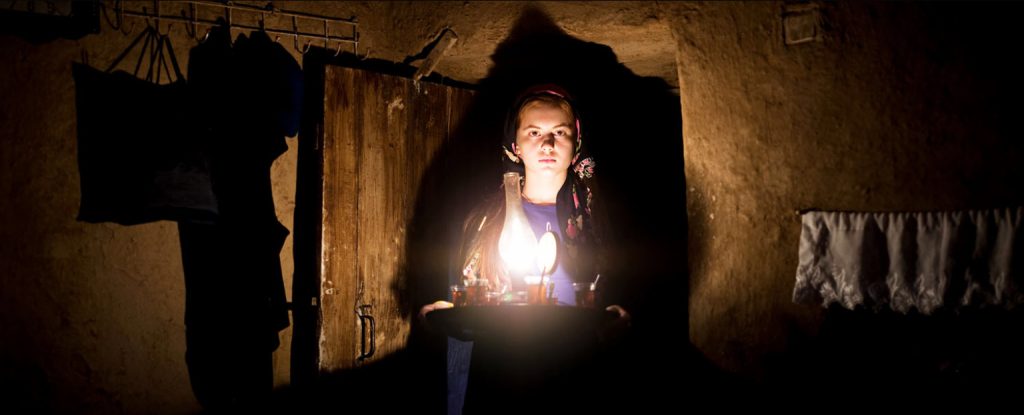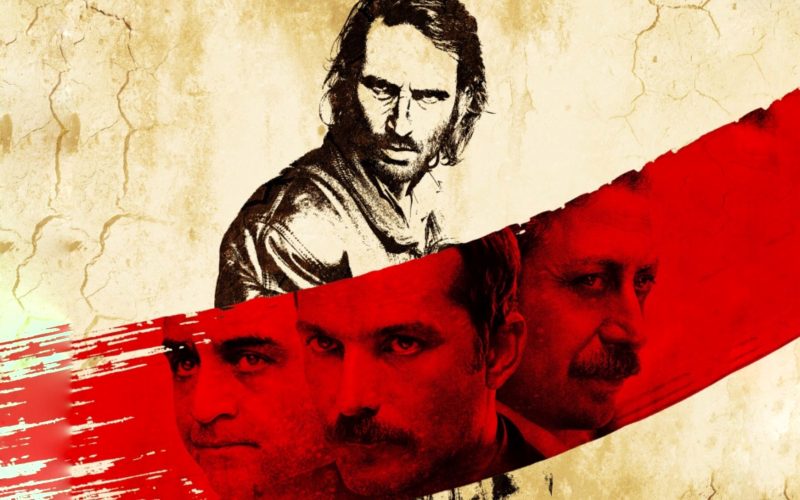Once Upon a Time in Anatolia (2011).
There are many ways to judge the success of a film, and I’m not talking box office takings. It’s the enjoyment factor, that shared experience you get whilst watching it, and afterwards when you discuss it with friends and colleagues. It can be a magical experience when you don’t realise that time is passing and you’re wrapped up in that protective and hypnotic duvet. Then, when the film has ended and real-life has reasserted itself, the feel of that duvet, be it emotional or intellectual (yes that can be comforting too) still lingers like a memory of a lover’s embrace.
This is the feeling I had after watching Once Upon A Time In Anatolia, a 2011 Turkish film from director and writer Nuri Bilge Ceylan.
The story, like the film, is deceptively simple. A murder has occurred and two men have confessed to burying the body somewhere in the bleak Anatolian countryside. The film starts with three cars driving around the austere landscape at night, stopping occasionally for everyone to get out and look around, looking for something to jog the killer’s memories as to where the body might be. Things are complicated because, in the darkness of this long night, nothing looks familiar.

The group get increasingly impatient and tired. They stop off at a small village where they are fed and can get some brief rest, then it’s back on the road. The body is eventually found that morning. This makes up two-thirds of the film.
To say that the film is slow is an understatement and I would certainly not recommend it to everyone. It’s a film in which nothing seems to happen, yet throughout, I was hypnotised by its beauty. Firstly, the cinematography is stunning. As the group wanders the countryside they are often lit only by car headlights and we are presented with mesmerising views of fields of grass dancing in the wind, illuminated starkly and surrounded by deep shadows. Inconsequential moments like an apple falling from a tree and tumbling down a hill until it lands in a stream, and then continuing to float until it’s stopped by a few rocks, become all-encompassing and important. This might not sound exciting, but it’s strangely beautiful and in no way soporific.
The topics of conversation are wide yet (again) inconsequential, or at least they seem to be. The party is made up of police led by Commissar Naci (Yılmaz Erdoğan), a doctor (Muhammet Uzuner is brilliantly understated as Doctor Cemal), a prosecutor (Taner Birsel) and several others who are there to guard the two prisoners and to dig up the remains when they’re discovered.

Initially it seems that the main character is the Commissar, but soon the story focuses on the Doctor and the Prosecutor. They don’t know each other and the conversations they engage in seem like small talk, although one story, told in passing, keeps being raised and eventually has a huge impact on the characters, fundamentally changing them and everything they’d previously believed.
In fact this is the key to the film. The conversations aren’t inconsequential. Although it’s not obvious to start, they serve to define the characters and eventually to even challenge their way of thinking and undermine who they think they are.
Importantly, however, nothing is outlined to the audience. There are no moments where meaning is spelt out; it’s up to us to work it all out ourselves. The truth about the characters, especially the prosecutor and the doctor, is revealed more through looks and furtive glances than dialogue. We work it out with the characters, becoming party to their secrets and their failings, but we’re never lectured to. This is a bold choice by Ceylan who puts his absolute trust in the audience.
None of this would work if it wasn’t for the universally great performances. They are understated but also deeply impactful, especially Muhammet Uzuner and Taner Birsel. The real champion however is the cinematography by Gökhan Tiryaki who makes the bleak beautiful and the drab interesting.

Once Upon A Time In Anatolia is a man’s film. Not because of misplaced bravado (although that is certainly on display at times and is somewhat challenged), but because it reflects a society which is deeply hierarchical and misogynist. Women are victims, as revealed in the conversation focusing on the beautiful young woman and the men’s lamentations about her inevitable decline and lack of opportunity in her life; or the victim’s wife who is offered sympathy whilst, at the same time, being ignored in her grief and is looked on as almost inconsequential. The lot of the women in this life is undoubtedly sad, however, at no time are these men put on a pedestal and they are certainly not there to be admired. They may have more opportunity but they are still victims of their surroundings.
I admit that I know little of Ceylan’s work. He has won the Grand Prix prize at Cannes twice, for Once Upon A Time In Anatolia and his 2002 film Uzak (English title, Distant). His 2014 film Winter Sleep also won the Palm d’Or. He is, without doubt, a very accomplished director who I will certainly be looking out for in the future. In the meantime, I will happily go back to Once Upon A Time In Anatolia. I know there is so much more to it; that its depths have only been glanced at and have not been fully appreciated. I will return to it again soon ready to be hypnotised by its beautiful bleakness and if this is a film that’s gone under your radar, I wholeheartedly recommend that you seek it out.
Film ‘89 Verdict – 9/10

